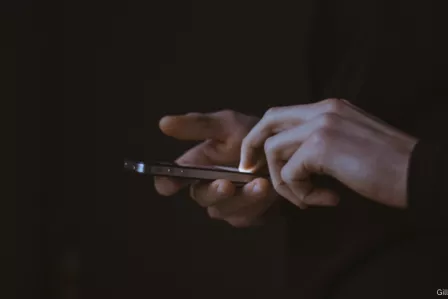In recent months, the BEE SECURE Helpline has observed an increase in cases of sextortion, particularly involving young internet users. Sexual extortion, also known as sextortion, is a form of blackmail using sexually explicit material, such as private/intimate photos, videos).

Perpetrators contact their potential victims via social media or dating apps, particularly Snapchat, Instagram or Tinder. Under the pretext of getting to know the targeted individuals, perpetrators communicate with them in order to find out as much information about them as possible. They ask questions, which may first appear harmless, such as 'do you have WhatsApp?', 'where do you go to school' or 'do you have a webcam?'.
In the next stage, conversations turn into flirts. Perpetrators often ask for intimate photos or suggest video calls so that they can see their victims. In doing so, their aim is to get hold of sexual material such as photos and videos.
If they succeed, they start blackmailing the targeted individual directly, intimidating them and putting them under pressure. The blackmailers threaten to forward the intimate photos/video directly to friends, followers, classmates, relatives or other contacts. They request large sums of money and issue an ultimatum, threatening to publish all of the naked photos unless the victim pays the required amount into their bank account/crypto wallet. Sometimes the photos are also manipulated to make the facts look even worse.
Blackmailers intimidate their victims by saying things like "I’ll ruin your life", "Everyone at your school will see your pictures" or "You’ll lose your job".
What can victims do in this kind of situation?
- Don’t respond and don’t negotiate with the fraudsters
- Don’t transfer any money to the fraudsters, because once you’ve made the first payment, they won’t stop blackmailing other people or asking for more payments.
- Keep evidence of chats by taking screenshots
- File a report with the police
- Report the person on the relevant platform (for example Instagram) and block them.
It’s best to temporarily deactivate your profile or at least restrict your privacy settings so that you can’t be found, people you don’t know can’t view your profile or in particular your contact list and you can’t be identified in your profile picture. This reduces the risk of people coming across other profiles (for example LinkedIn) via online image search tools.
Find more information about the work of the Luxembourgish Safer Internet Centre, including its awareness raising, helpline, hotline, and youth participation services – or find similar information for other Safer Internet Centres throughout Europe.
In recent months, the BEE SECURE Helpline has observed an increase in cases of sextortion, particularly involving young internet users. Sexual extortion, also known as sextortion, is a form of blackmail using sexually explicit material, such as private/intimate photos, videos).

Perpetrators contact their potential victims via social media or dating apps, particularly Snapchat, Instagram or Tinder. Under the pretext of getting to know the targeted individuals, perpetrators communicate with them in order to find out as much information about them as possible. They ask questions, which may first appear harmless, such as 'do you have WhatsApp?', 'where do you go to school' or 'do you have a webcam?'.
In the next stage, conversations turn into flirts. Perpetrators often ask for intimate photos or suggest video calls so that they can see their victims. In doing so, their aim is to get hold of sexual material such as photos and videos.
If they succeed, they start blackmailing the targeted individual directly, intimidating them and putting them under pressure. The blackmailers threaten to forward the intimate photos/video directly to friends, followers, classmates, relatives or other contacts. They request large sums of money and issue an ultimatum, threatening to publish all of the naked photos unless the victim pays the required amount into their bank account/crypto wallet. Sometimes the photos are also manipulated to make the facts look even worse.
Blackmailers intimidate their victims by saying things like "I’ll ruin your life", "Everyone at your school will see your pictures" or "You’ll lose your job".
What can victims do in this kind of situation?
- Don’t respond and don’t negotiate with the fraudsters
- Don’t transfer any money to the fraudsters, because once you’ve made the first payment, they won’t stop blackmailing other people or asking for more payments.
- Keep evidence of chats by taking screenshots
- File a report with the police
- Report the person on the relevant platform (for example Instagram) and block them.
It’s best to temporarily deactivate your profile or at least restrict your privacy settings so that you can’t be found, people you don’t know can’t view your profile or in particular your contact list and you can’t be identified in your profile picture. This reduces the risk of people coming across other profiles (for example LinkedIn) via online image search tools.
Find more information about the work of the Luxembourgish Safer Internet Centre, including its awareness raising, helpline, hotline, and youth participation services – or find similar information for other Safer Internet Centres throughout Europe.
- sextortion helpline
Related content
- < Previous article
- Next article >












